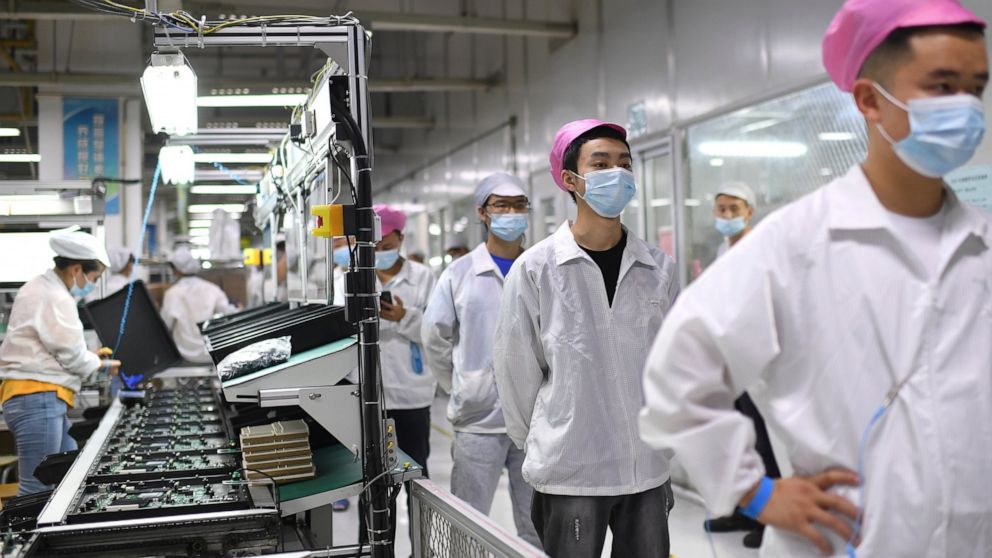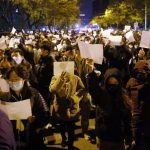It has not been a good week for Apple with the spotlight turned directly on the Politics the organization appears to be trying to push.
Apple have according to Elon Musk threatened to pull Twitter from the App Store because Musk has made it a free speech platform, at the same time they have remained silent on the workers at their factories in China being in full revolt against the Government over conditions in the country.
“Apple has mostly stopped advertising on Twitter,” Must wrote. “Do they hate free speech in America?”
The answer is yes, not only do they hate free speech in America, they hate it all over the world. In the United States, Apple remains one of the “Big Four” tech giants with a backdoor hand in censorship.
Apple has mostly stopped advertising on Twitter. Do they hate free speech in America?
— Elon Musk (@elonmusk) November 28, 2022Protestors have been using air drop to bypass censorship and share information about protests.
Apple has a vested interest in making sure its factory is fully staffed to get new iPhones out in time for Christmas ⚠️⚠️⚠️#china #ChinaProtests #Apple pic.twitter.com/YDrEb7dimm
— Wall Street Silver (@WallStreetSilv) November 28, 2022Contrary to what Apple says, many of the apps that are blocked by its teams are not related to gambling or porn. This is especially true for China, where there are currently 10852 apps unavailable, including News Apps such as the New York Times and the BBC.
To see the latest changes detected by the App Monitor, click here.
Apple enables the Chinese government’s surveillance and censorship of citizens, as well as denying people living under China’s rule access to a free and open internet.
At the request of the government of China, Apple has removed 1,000+ “virtual private networks” (VPNs) from the App Store in China, in addition to news media apps like The New York Times and Quartz.
VPNs not only allow access to information but they provide critical, safe communication channels for Tibetans, Uyghurs, and Chinese dissidents and human rights defenders working to secure basic rights and freedoms.
In October 2019, Apple removed HKmap.live; a crowdsourcing app being used by Hong Kong residents, journalists, and tourists to see where protests and police build-up are happening to allow areas to be avoided and to stay safe.
Some more damming evidence from STALLMAN.ORG
- Apple imposed a new limit on file-sharing following a demand by the Chinese government.
- *Apple Suppressing Human Rights Critics* for China.
- Apple has blocked Telegram from upgrading its app for a month. This evidently has to do with Russia’s command to Apple to block Telegram in Russia.The Telegram client is free software on other platforms, but no apps are free on an iThing
- Apple used its censorship system to enforce China’s censorship by blocking distribution of the New York Times app.More about Apple’s censorship of apps and other malicious functionalities in Apple software.
- Apple appears to be censoring all bitcoin apps for iThings.It should be illegal to make or distribute computers which are platforms for censorship.
- Apple demonstrates the arbitrariness of its censorship by blocking an app that tells people with text messages when US drone attacks kill civilians.The author said that this app was meant to raise awareness. I hope Apple’s censorship of it raises awareness.
Apple spies on its users, and helps others spy on them.
- If you carry a cell phone, it tells Big Brother where you are. Apple wants to hand out the information too.Using the lever of “You have a choice, but unless you say yes, your old activities will stop working” is something that Apple has done before, with malicious “upgrades”. Apple ostensibly doesn’t force people to accept the new nasty thing; it just punishes them if they don’t.
- Apple left a security hole in iTunes unfixed for 3 years after being informed about the problem. During that time, governments used that security hole to invade people’s computers.
- Apple’s Capitulation to China’s VPN Crack-Down Will Return to Haunt it at Home.
- Apple has outsourced its user data storage in China to a company controlled by the Communist Party of the province of Guizhou









